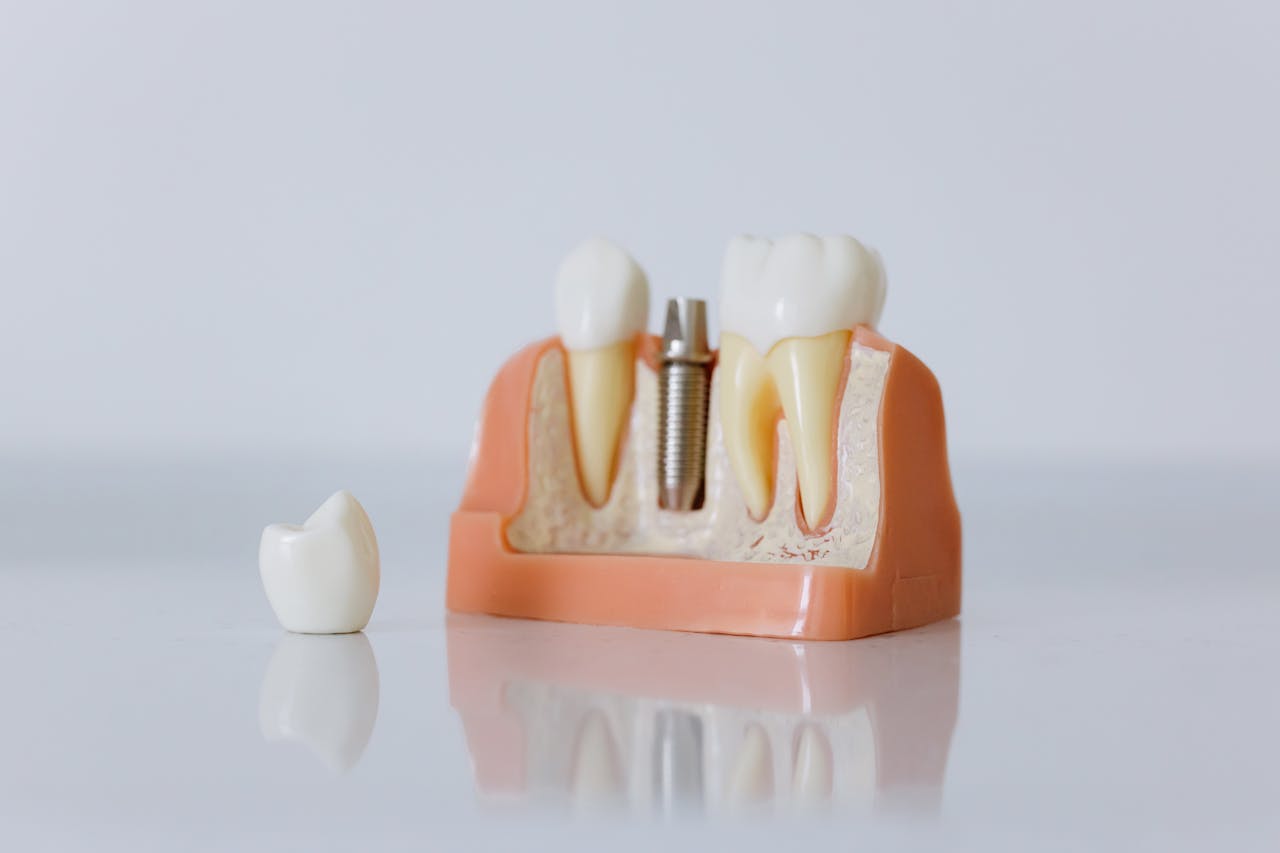Dental health is a crucial aspect of overall wellbeing, with dental implants often playing a significant role in restoring smiles. These implants serve as a permanent solution to missing teeth, offering benefits that significantly outweigh traditional tooth replacement options. Understanding what dental implants entail is the first step for anyone considering this option for their oral health.
The Importance of Dental Implants
Dental implants are titanium posts surgically placed into the jawbone beneath the gum line, allowing a dentist to mount replacement teeth or bridges into that area. Unlike dentures, implants do not come loose. They also benefit general oral health because they do not have to be anchored to other teeth, like bridges.
For top-quality dental care, search “Hampshire dental implants” on Google to find trusted professionals who can help restore your smile.
Advantages Over Traditional Options
Dental implants offer numerous advantages over traditional tooth replacement methods such as dentures and bridges. They provide a stable foundation for replacement teeth, ensuring they don’t shift or slip in your mouth, which is a common problem with dentures. This stability allows for better speech and eating capabilities. Implants also help maintain jawbone integrity, preventing bone loss that typically occurs with missing teeth, thereby preserving facial structure.
Suitable Candidates for Dental Implants
While dental implants are a versatile solution, they are not suitable for everyone. Ideal candidates are those with good oral hygiene practices and adequate bone to support the implant. Smokers, people suffering from uncontrolled chronic disorders like diabetes or heart disease, or patients who have had radiation therapy to the head or neck area need to be evaluated on an individual basis.
The Dental Implant Process
The process of getting dental implants involves several steps, beginning with a comprehensive consultation. Your dentist will assess your oral health, take X-rays or 3D images, and discuss the number of teeth to be replaced. The surgical procedure involves placing the implant posts into the jawbone, followed by a period of healing where the jawbone grows around the implant. Once healed, an abutment is placed, and finally, the new teeth are attached.
Dispelling Common Misconceptions
There are several misconceptions surrounding dental implants. Some patients believe the procedure is extremely painful, but most find it only mildly uncomfortable, with some discomfort during recovery. Others think dental implants are prohibitively expensive, yet when considering their longevity and benefits, they often offer value that outweighs initial costs.
Caring for Dental Implants
Long-term care of dental implants involves maintaining excellent oral hygiene. Regular brushing and flossing, alongside routine dental check-ups, are essential. Unlike dentures, which can require adhesives and special cleaning processes, implants fit seamlessly into a regular oral care routine.
Success Rates and Patient Satisfaction
Dental implants boast high success rates, often exceeding 95% depending on where in the jaw the implants are placed. Patient satisfaction is consistently high due to the natural appearance and feel of the implants. Patients report improvements in comfort, speech, and self-esteem, contributing to overall satisfaction with the procedure.
Cost Considerations and Insurance
The cost of dental implants can vary based on factors such as the number of teeth being replaced and any additional procedures required. While the initial investment can be significant, many dental practices offer payment plans to spread the cost. Insurance coverage for dental implants varies, so it’s worth discussing with your provider to understand your coverage and potential out-of-pocket expenses.
Conclusion and Next Steps
Dental implants represent a significant advancement in dental solutions for permanent tooth replacement. If you are considering dental implants, it’s important to consult with a dental professional to explore your options and determine your suitability for the procedure. With their natural look and feel, high success rates, and positive impact on oral health, dental implants continue to be a popular choice for those seeking a long-term solution to missing teeth.
